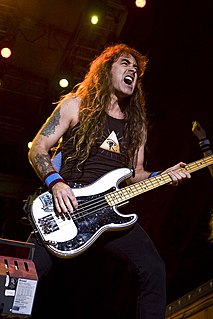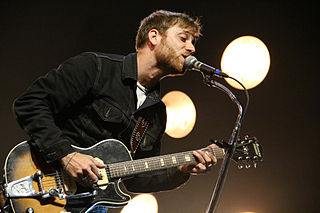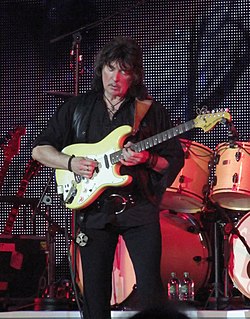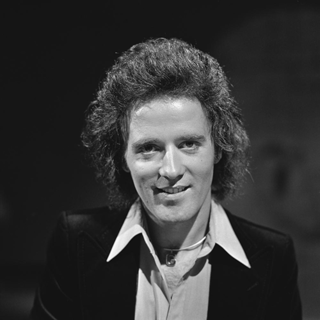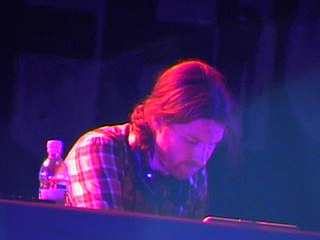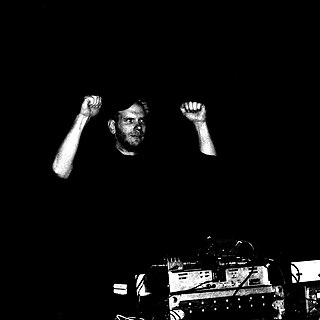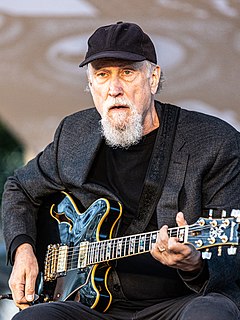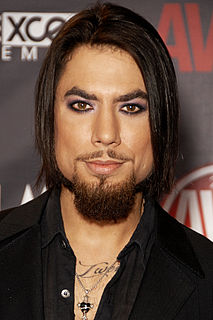A Quote by Steve Harris
The only thing I don't write is the guitar solos, but even then I might suggest one or two things.
Quote Topics
Related Quotes
Listening to as many guitar solos as possible is the best method for someone in the early stages. But saxophone solos can be helpful. They're interesting because they are all single notes, and therefore can be repeated on the guitar. If you can copy a sax solo you're playing very well, because the average saxophonist can play much better than the average guitarist.
I can't draw. But I can draw with sound. That's the most useful thing I learned in terms of what my craft is... The arrangements were mine. They were little lines and stuff that I had written myself... And I was locked into this idea that vocals didn't count, melodies didn't count, songwriting craftsmanship didn't count. The only thing that counted was high arching guitar solos...
